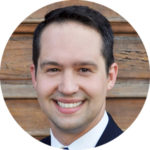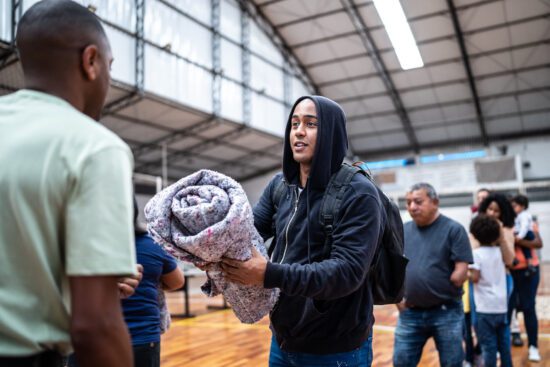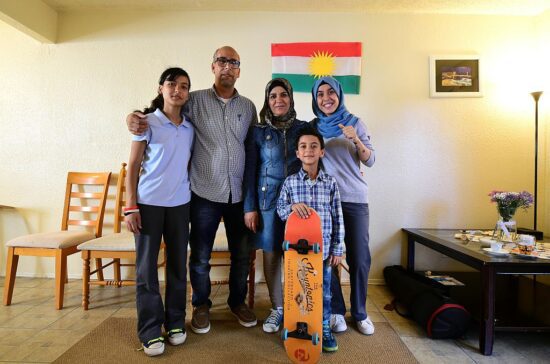I was able to catch up with refugee expert Jenny Yang on a recent episode of the Canon & Culture Podcast. Below is a condensed Q&A from that conversation. The full interview can be heard in its entirety here. Jenny Yang is Vice President for Public Policy at World Relief.
Visit our Syria page to learn about the #PrayforRefugees Campaign.
What is World Relief?
YANG: World Relief is a humanitarian arm of the National Association of Evangelicals. We were actually created after WWII when evangelicals in the United States were asking what they could do to respond to the widows and orphans that were a result of the war in Europe at that time. They gathered together and sent food and clothing and, since then, we have been serving the most vulnerable around the world and in the United States. We are one of the nine agencies in the United States that resettles refugees. In many communities where we serve, primarily in Africa and Asia, we try to empower local churches to identify and serve the most vulnerable in their community.
Humanitarian organizations do not consider resettlement the first or even the best option for refugees. How do World Relief and other humanitarian groups get to the point of saying, look, this person or this family really does need to resettle in a different land?
YANG: Resettlement is one of three durable solutions for any refugee. And, of course, you actually have to be a refugee, which means you have to flee across a border into another country. Most people who are displaced remain displaced within their own country, which means resettlement is not an option to them.There are around 20 million refugees around the world, and most of these refugees will never be resettled.
The first durable solution for any refugee is to be able to voluntarily repatriate to their own country. This means, for many refugees, when the war is over and there is enough rebuilding and safety, some refugees are able to go home.
The second durable solution is called local integration. If a refugee cannot return home but they are seeking asylum in another country, then there are times when they are able to get legal status and actually integrate into the communities. In some situations, with refugees when they have been living there for 15 to 20 years, the host government will actually allow that to happen because many of them are pretty much from that country and have adopted those country’s values.
[The third durable solution], for a small, small, small number of refugees, is resettlement if they [a] cannot return home and if they [b] cannot locally integrate. Worldwide, the numbers for refugees that are resettled is probably around 200,000 or a little bit less than that (< 1 percent of global total).
Now, as a refugee, even if you want resettlement, you cannot apply to be resettled to another country. The U.N. High Commissioner for Refugees (UNHCR) looks at all the people who have registered and tries to identify the most vulnerable individuals who are having an extremely difficult time integrating into the host community. For example, in the Syrian refugee crisis, you will see many of the refugees that are coming through the U.S. have been victims of torture. They are people who, for political reasons, are highly targeted and vulnerable, even in a [nearby] country with asylum.
[Following a recommendation by the UNHCR, the United States’] process by which they are able to come normally takes between 18 to 24 months. The reason it takes so long is because they have to be vetted through multiple security agencies in the United States. They are the most highly, vigorously vetted individuals to come to the United States.
Let’s say someone passes those hurdles—crosses an international border, registers at a U.N. refugee camp, is selected by the UNHCR, goes through the United States’ lengthy screening process—what happens after a refugee arrives in the States?
YANG: All of the refugees are partnered with one of the nine voluntary agencies or “VOLAGS,” the resettlement agencies of which World Relief is one. When we receive the biographical information for a specific refugee family, we will determine what city is the best. A lot of factors go into that. In some cases, the refugees will have family members or some community ties to a specific city. In other cases, they don’t have any ties, which means we can place them in a community where we feel like they could be welcomed. World Relief works in 27 different cities. We have sent Syrian refugees to 21 of the 26 offices where we receive refugees.
Once they arrive to the United States, we have between six to eight months to help them get on their feet, find a job, and learn English. Most of the refugees do find a job within the first six months or so. They are also going to English classes and are quickly integrated despite their experience being a refugee overseas.
Can you give us an example of a local church getting involved?
YANG: I will actually give a great example. In the state of Georgia, there has been really a difficult environment because the governor [had] been saying he doesn’t want Syrian refugees coming into their state. One of the specific things he did was to cut off benefits for Syrian refugees once they get to Georgia. And a local church there said, even if the government doesn’t provide these benefits to the refugees, we are willing to provide whatever this family needs (a couple with a little child). This church is Johnson Ferry Baptist Church, which is a significant Southern Baptist church in Georgia. Their Senior Pastor, Bryant Wright, was the former president of the Southern Baptist Convention.
If a church is interested in assisting a refugee resettlement process and learning more, where might they go?
YANG: Go to wewelcomerefugees.com. There are U.S. offices of World Relief and other agencies where you can volunteer to meet a refugee family and help them in their initial resettlement. On that web site, you will also see resources for pastors to preach on refugees from a theological point of view. There are also frequently asked questions and other information that could really help any church leader or ministry leader. Any person that wants to volunteer can get more information about how to do that.










